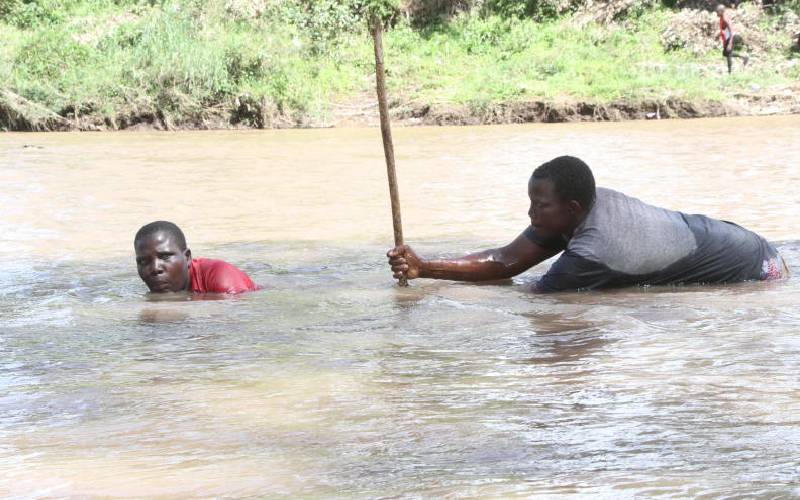×
The Standard e-Paper
Smart Minds Choose Us

Four women stand on the bank of River Migori in Suna East, buckets in hand, as they survey the visible stretch of water for any signs of a crocodile.
For the four women, and many other locals in that area, the river that flows past Migori town on its way to Lake Victoria, is a necessary and bittersweet dice with death.